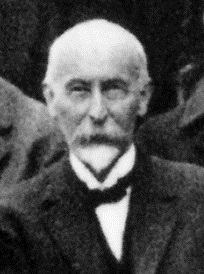Charles-Eugène Guye on:
[Wikipedia]
[Google]
[Amazon]
 Charles-Eugène Guye (October 15, 1866 – July 15, 1942) was a Swiss physicist. He was born in
Charles-Eugène Guye (October 15, 1866 – July 15, 1942) was a Swiss physicist. He was born in
Guye, Charles-Eugène in the Complete Dictionary of Scientific Biography
Historisches Lexikon ''der Schweiz''
 Charles-Eugène Guye (October 15, 1866 – July 15, 1942) was a Swiss physicist. He was born in
Charles-Eugène Guye (October 15, 1866 – July 15, 1942) was a Swiss physicist. He was born in Champvent
Champvent () is a municipality in the district of Jura-Nord Vaudois of the canton of Vaud in Switzerland. The municipalities of Essert-sous-Champvent and Villars-sous-Champvent merged on 1 January 2012 into Champvent.Geneva
, neighboring_municipalities= Carouge, Chêne-Bougeries, Cologny, Lancy, Grand-Saconnex, Pregny-Chambésy, Vernier, Veyrier
, website = https://www.geneve.ch/
Geneva ( ; french: Genève ) frp, Genèva ; german: link=no, Genf ; it, Ginevr ...
.
Life and works
Guye studied physics at theUniversity of Geneva
The University of Geneva (French: ''Université de Genève'') is a public research university located in Geneva, Switzerland. It was founded in 1559 by John Calvin as a theological seminary. It remained focused on theology until the 17th centur ...
, where he received his doctorate
A doctorate (from Latin ''docere'', "to teach"), doctor's degree (from Latin ''doctor'', "teacher"), or doctoral degree is an academic degree awarded by universities and some other educational institutions, derived from the ancient formalism ''li ...
in 1889, studying the phenomenon of optical rotatory dispersion.
From 1890 to 1892 Charles-Eugène worked as a Privatdozent (lecturer) in Geneva, and from 1893 to 1900 he was a Privatdozent at Zurich Polytechnic (now the Federal Institute of Technology Zurich ETH Zurich), switching his research interests to electrical engineering. Albert Einstein
Albert Einstein ( ; ; 14 March 1879 – 18 April 1955) was a German-born theoretical physicist, widely acknowledged to be one of the greatest and most influential physicists of all time. Einstein is best known for developing the theory ...
was one of his students. From 1900 to 1930 he was professor and director of the Physics Institute of the University of Geneva.
His research focus was in the fields of electric currents, magnetism, and electrical discharges in gases. Starting in 1907 and continuing for over a decade, he and his students Simon Ratnowsky and Charles Lavanchy conducted experiments that demonstrated the dependence of the electron mass on its speed, with results supporting the predictions of Lorentz, Einstein, and the special theory of relativity against Max Abraham
Max Abraham (; 26 March 1875 – 16 November 1922) was a German physicist known for his work on electromagnetism and his opposition to the theory of relativity.
Biography
Abraham was born in Danzig, Imperial Germany (now Gdańsk in Poland) t ...
's rival theory of the electron.
He participated in the 5th and 7th Solvay Conference
The Solvay Conferences (french: Conseils Solvay) have been devoted to outstanding preeminent open problems in both physics and chemistry. They began with the historic invitation-only 1911 Solvay Conference on Physics, considered a turning point i ...
s, and was the author or co-author of over 200 papers in physics and several popular books, including philosophical works on the biological-physical-chemical basis of evolution and the limits of physics and biology.
His older brother, Philippe-Auguste
Philip II (21 August 1165 – 14 July 1223), byname Philip Augustus (french: Philippe Auguste), was King of France from 1180 to 1223. His predecessors had been known as kings of the Franks, but from 1190 onward, Philip became the first French m ...
(1862–1922), was a distinguished chemist.
External links
Guye, Charles-Eugène in the Complete Dictionary of Scientific Biography
Historisches Lexikon ''der Schweiz''
References
{{DEFAULTSORT:Guye, Charles-Eugene 1866 births 1942 deaths Swiss physicists